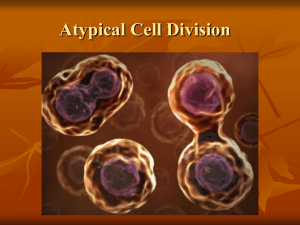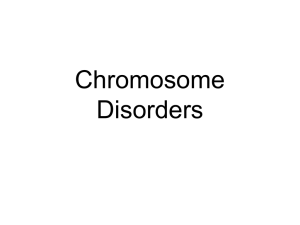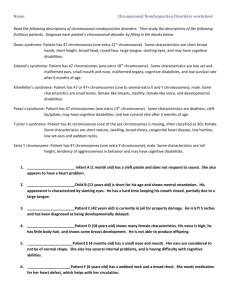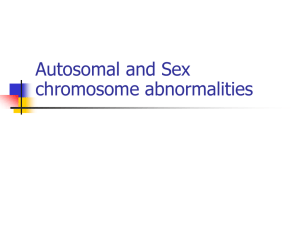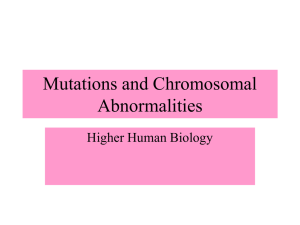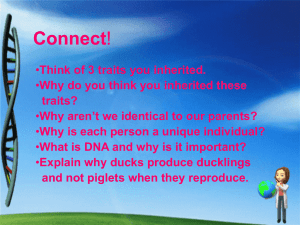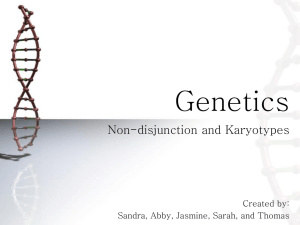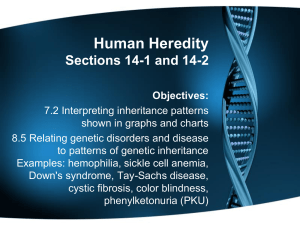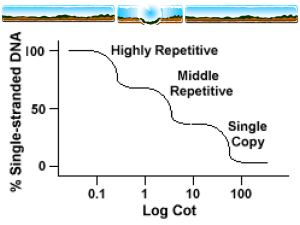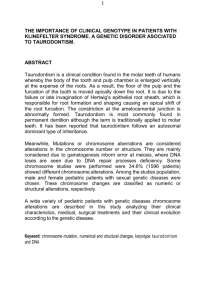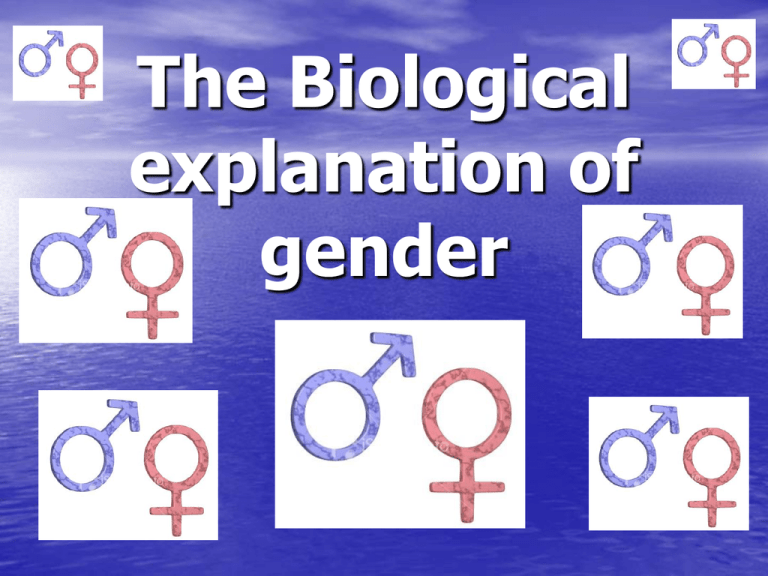
The Biological
explanation of
gender
Lesson Objectives
By the end of this lesson you will
understand:
1. Typical sex chromosome patterns
2. Atypical sex chromosome patterns
3. Dabbs et al (1995)
Biological explanations
Biopsychologists assume that all gender
differences are totally attributed to
chromosomal differences, differences in
brain structure & function and differences
in hormonal activity.
Biological explanations
• The normal human
body contains 23 pairs
of chromosomes.
• Each pair of
chromosomes
carries genes that
control different
characteristics.
• Biological sex is
determined by the
23rd pair. So females
have the genotype XX
and males the
genotype XY.
Atypical sex-chromosomes
• Any combination of sex chromosomes
other than XX or XY is seen as atypical.
• Klinefelter’s and Turner’s syndrome are
examples of conditions which result from
atypical sex chromosome conditions.
Klinefelter Syndrome
Turner syndrome
Atypcial Chromosomes
Klinefelter Syndrome
(XXY)
Caused by the presence of an extra X
chromosome
Biological male with a physical
appearance of male
Turner Syndrome (XO)
Caused by the absence of an X
chromosome
Biological female with the female
external appearance
Affects 1 in 2500
Affects between 1 in 500 and 1 in
1000 males
Psychological effects: poor language
skills – which affects reading ability,
passive temperament
Psychological effects; higher than
average reading ability; lower than
average spatial ability, visual memory
and mathematical skills; difficulty is
social adjustment
Physical effects: less body hair than
normal male, underdeveloped genitals,
long legs in relation to torso, infertile
Physical effects; ovaries fail to
develop, short squat body with
webbed neck
Atypical Chromosomes
• What does studying people with atypical
sex chromosome patterns allow us to
conclude what about gender?
Atypical Chromosomes
It provides evidence that our biological makeup is
responsible for gender-related behaviour.
For example, by comparing someone with typical
chromosomes to someone with atypical
chromosomes you can make clear comparisons
what aspects of their behaviour have a genetic
cause.
Studies to support:
Imperato mc Ginley et al (1979)
Money and Erhardt (1972)
Chromosomes
Q. Give the typical sex chromosome pattern
for the following:
a male
a female
(2 marks)
Exam questions
Q. Identify one atypical sex chromosome
pattern and outline how it might affect an
individual.
(3 marks)
Past papers
Victoria is five years old and she is different from other girls of her age.
She is smaller in height and has a webbed neck. At school, her
teachers have commented that she has good verbal skills but her
mathematical skills are poor. Medical tests have revealed that Victoria
has a sex chromosome pattern XO.
Q.
Name the atypical sex chromosome syndrome described
above.
(1 mark)
Q.
Identify how Victoria’s sex chromosome pattern differs from
that of most girls. (1 mark)
Q.
Explain how studying people like Victoria can contribute to our
understanding Of gender.
(2 marks)
Summary
• What three things have you learned
today….
Q Name one sex hormone and give an
example of how this hormone might affect
a person’s behaviour. (2 marks)
Discuss biological explanations of gender
development. Refer to at least one study
in your answer. (10 marks)

